covid response
Two years through, we conducted widespread campaigns related to maintaining COVID-19 protocols, supporting the Government health teams in conducting COVID-19 RAT camps, vaccination camps, health awareness generation, stitching of masks by self-help group women, distribution of sanitation/hygiene kits, sharing of information related to government economic relief schemes for the poor; training and livelihood support to migrant workers, status and impact studies of rural households focusing on women and children
Our Impact
32K
Villagers contacted
3K
health kits
6K
Facemasks stitched & distributed
20K
Leaflets distributed
22K
Access for Garib Kalyan Yojana
SUPPORT TO MIGRANT WORKERS
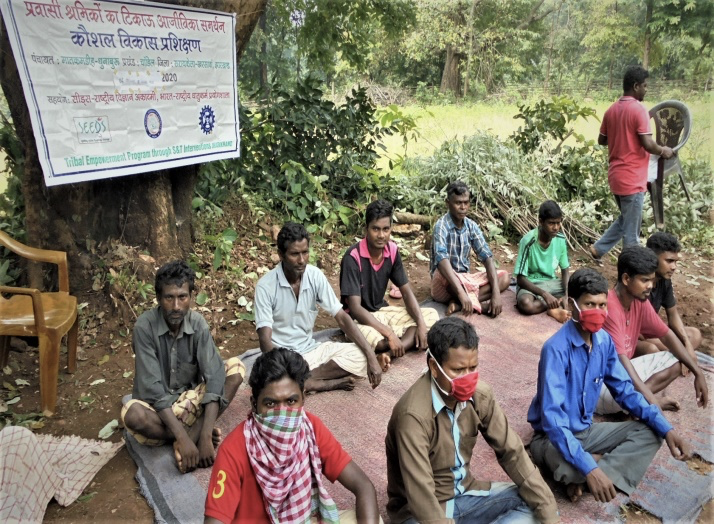
The year 2020-2021 was faced with serious repercussions in the socio-economic fields. The influx of migrant labourers to their native villages from various parts of the country posed a new threat to the otherwise unaffected spaces. It is with some satisfaction that we state that our village communities by and large responded well and adapted to the challenging and unforeseen circumstances arising out of this influx.
There was a complete ban by the villagers and family members on their entry inside their home. This bold and preventive step helped to control the spread of the virus inside the villages. The migrants were quarantined outside the villages and they readily accepted this. In any case they were too relieved and content to be back on their soil after their trying ordeal at their work place in distant States.
The months of July and August 2020 was marked by our engagement with the migrant workers. We identified over 5200 migrant workers in some of our work areas in five Blocks of Jharkhand. However financial constraints forced us to limit our work to only two panchayats in the Chandil block covering barely 5% of the identified migrant workers.
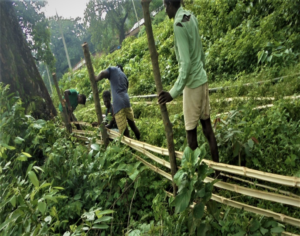
Several interactions with the migrants enabled us to narrow down our interventions to capacity building and lend some start- up support for engaging in livelihood initiatives that would yield early results. The training programmes on horticulture, dry land/upland farming, making vermicompost and organic pesticides is not only helping the workers themselves but they are getting a good market in the neighbouring villages too.
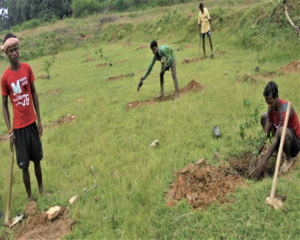
Congratulations to your team – it is amazing how fast they managed to be at the side of the people during COVID and that SEEDS has taken so well care to protect their staff and also the people you come in contact with.
Dr Eva Wallensteiner
Project Dept. KFB Vienna
SEEDS has strived hard to build operational resilience and bolster the personal resilience of all its staff at various levels. Needless to say they have and still are working amidst risk and adversity. All team members serving far and wide have worked tirelessly. Our lines of communication had been kept open all along the months not only for the staff and volunteers but for the entire communities in our work areas.
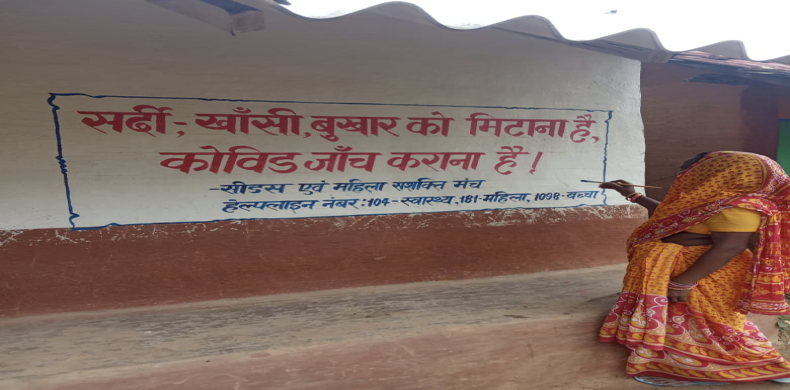
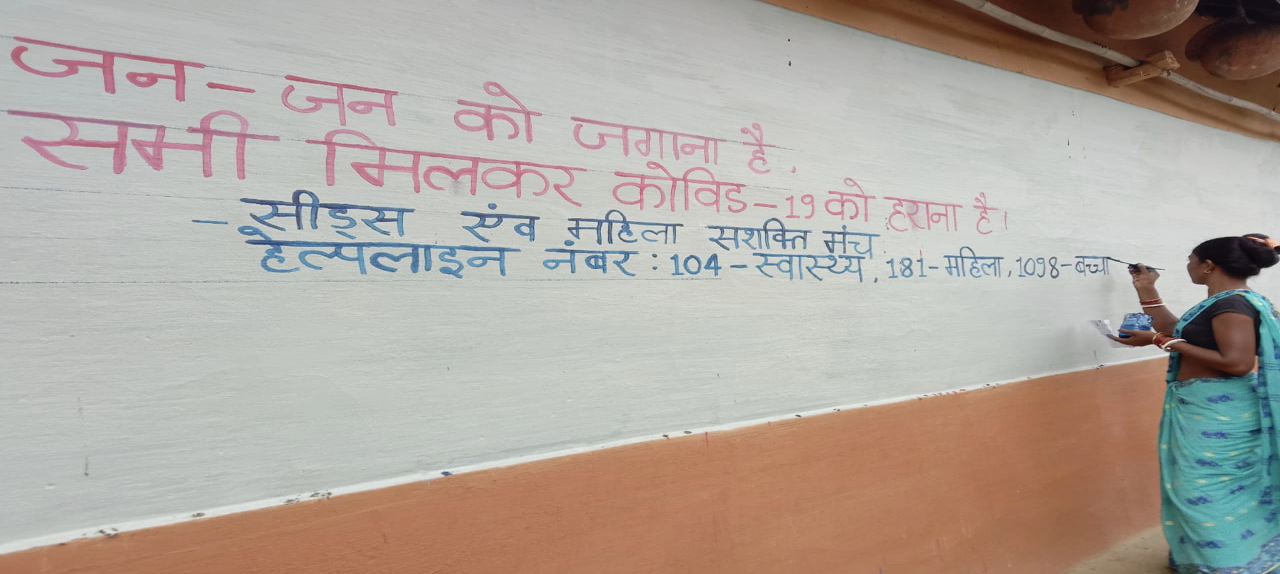
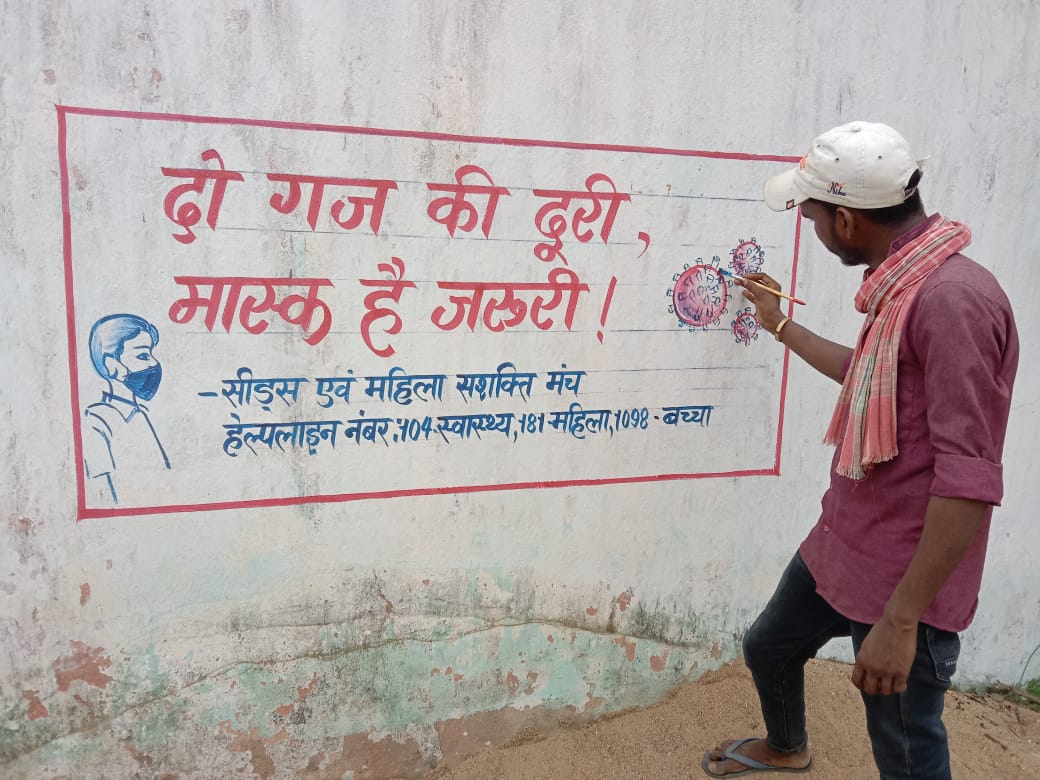
A Study on Children's Experiences on 18 Months of COVID has recorded the responses of 895 children in the age group 9-20 years, of which 52% are girls. It focuses on their experiences and expectations related to education, economic and socio-emotional issues.
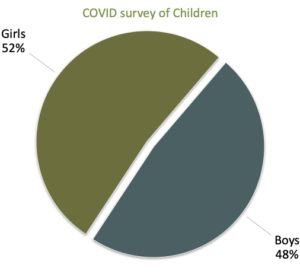

It was heartening to note that no families faced food shortage – 95% women stated that they had received the government entitlements regularly, in the form of rice/wheat/pulses/gas cylinder/ kerosene oil /monetary transfer in banks. One encouraging response was regarding fear of policemen among the village women. About 65.5% women stated that they were no longer afraid of policemen. The role of the police underwent a change during the pandemic and they became very people friendly.
On the other side, the daily /monthly earnings in households had largely reduced due to the lockdown. However a good output that became visible was that more number of men had started doing work in the kitchen garden, in the household and had started doing petty business in and around their village.
Having all the time in hand, men and children together, erected proper fences for the kitchen garden for cultivating vegetables that not only started giving them good returns but also enhanced the family nutritional intake. Some men had started hand stitching rugs out of old clothes and then selling them on bicycles, fetching them a good income.
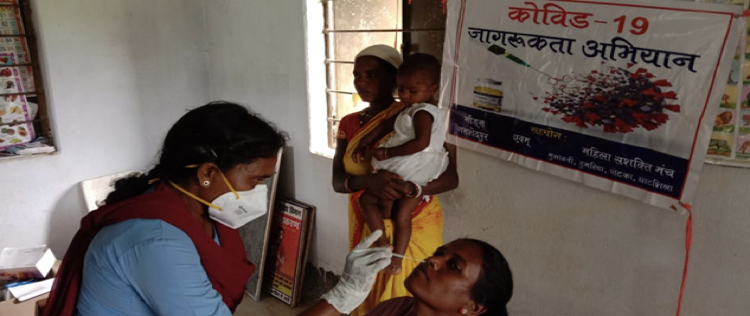
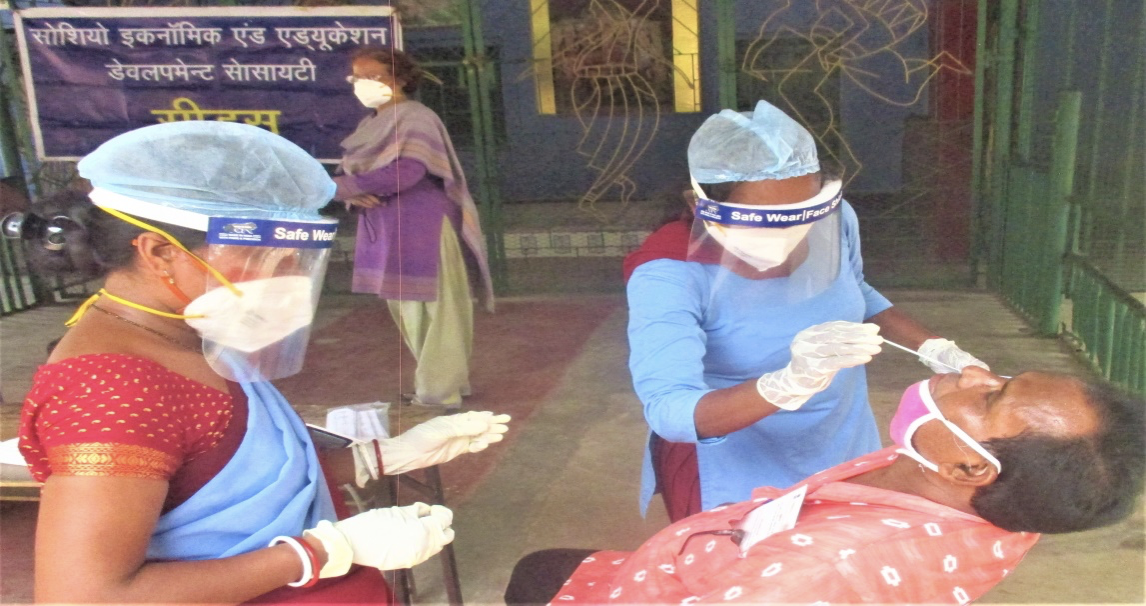
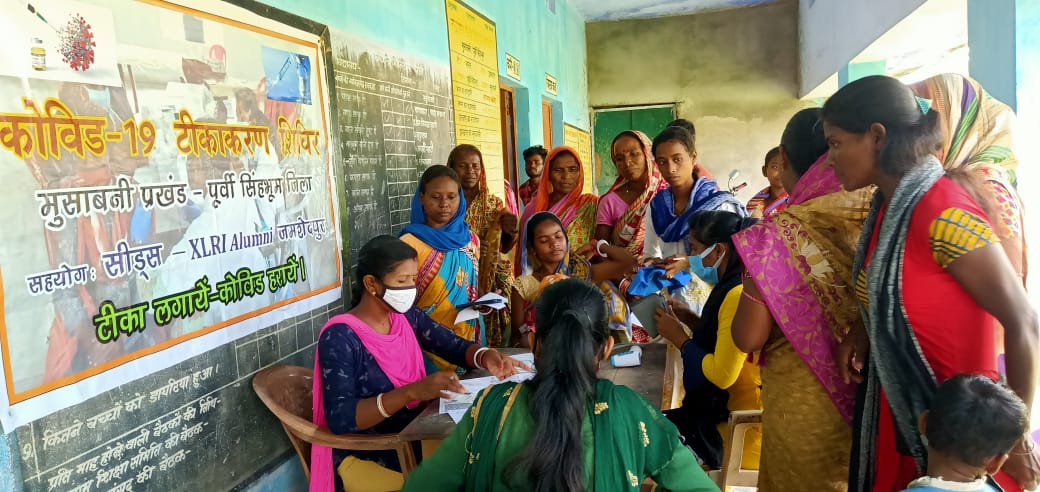
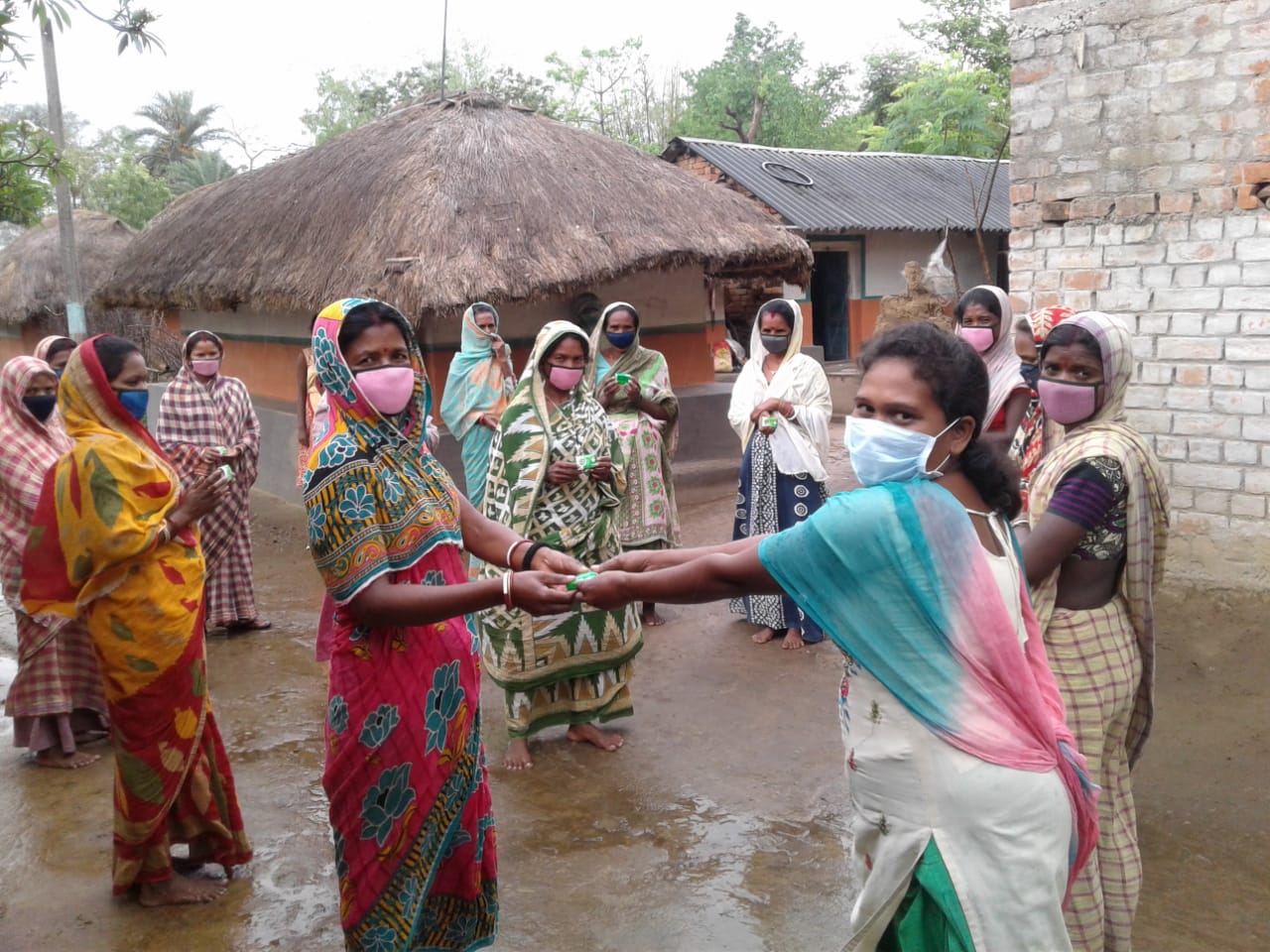
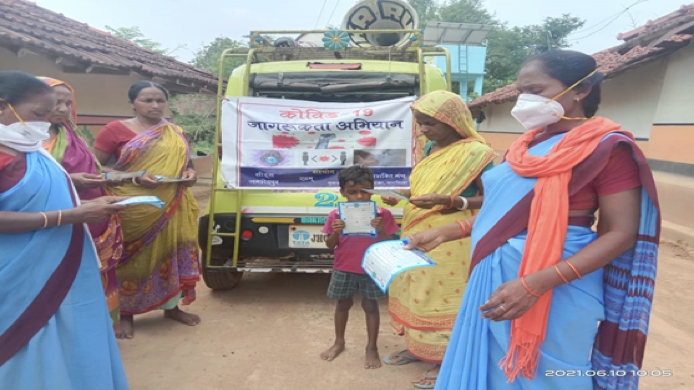
DOMESTIC VIOLENCE
Our Study findings show a decline in cases of domestic violence. A majority 85% women have stated this fact. A positive correlation has been found between decline in drinking alcohol by men and a corresponding decline in violence While 41% men had stopped drinking, 52% had drastically reduced the intake.
Brewing and sale of alcohol or rice beer (handia) in all these villages was totally banned. The presence of all family members in the home created a cordial atmosphere within the home hence there was no scope of violence. However the remaining 14.74% women stated that the occurrence of domestic violence was same as before. This was found mostly in those households having polygamous men.
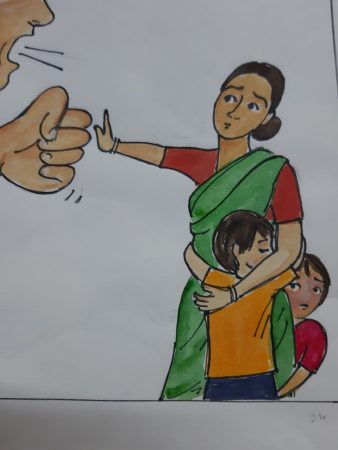
“I am happy that my family of five, has remained COVID-free. At the same time we lacked money to buy home essentials. My husband – a contract labourer lost his job in the pandemic. Not owning any farmland, he had no option but chopping wood from nearby forests and selling it. With the meagre earning, he somehow managed to buy food-grains which was just enough for survival. One morning our Project Animator, Yamuna Didi came to meet the self-help group women in our village. During the experience sharing about coping with COVID, I too narrated my woes. I am so grateful to Didi for suggesting that I buy a pig for income generation but paucity of money was a deterrent.
Story of Change
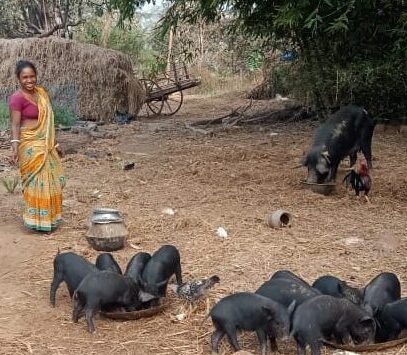
The group members came to my rescue and lost no time in granting me a loan of Rs 2500 from the group fund. I immediately purchased a pig locally. During a span of one year I became the proud owner of 12 piglets. I kept selling a few and earned Rs 30000. We have now become food secure, my husband is no longer dependent on an outside job and we send our children daily to take tuition because the schools are still closed.”
– Heera Murmu, village – Kakdoha, Musabani
WALK WITH US
At SEEDS, no contribution is small. Become harbingers of change by affirmative action.
